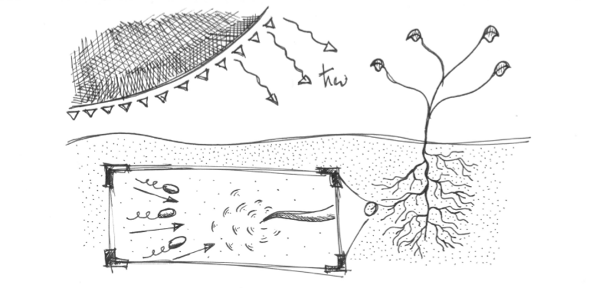
Collaborative areas include
Biophysics of microbes for biotechnology
We study the peculiar biophysics of microorganisms underpinning environmental biotechnologies, such as pollution bioremediation, agriculture and algal culture. This area is the concern of Dr Ottavio Croze. The group uses mathematical modelling, computer simulation and experiment to understand the population, fluid and metabolic dynamics of bacteria and algae.
Biomimetics
Researchers in this area study natural materials to reveal design principles that improve man-made materials and devices. The optical biomimetics of plants and insects, leading to intriguing photonic effects, are explored by Prof. Jeremy Baumberg and Dr Silvia Vignolini.
Chromosome structure via computer simulations
Gene function is intimately linked to the organization of the DNA within chromosomes. Dr Collepardo’s group develops and applies multiscale computational approaches to investigate chromosome structure in conditions mimicking those inside cells, and the molecular mechanisms that lead to structural changes.
